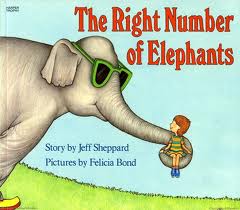
A new study shows that children’s books have a direct impact on how children learn about animals and the world around them. (Credit: Felicia Bond, Wikimedia Commons)
A new study shows that children who read books where animals were described using anthropomorphic language (e.g. talking, arguing) or images (e.g. wearing clothes) were more likely to attribute anthropomorphic characteristics to real non-human animals that those who heard a story with realistic language or images. The authors say that such books impact children’s factual learning, and suggest using a variety of informational and non-fiction books to teach children about nature.
Original research paper published in the journal Frontiers in Psychology on March 17, 2014.
Names and affiliations of selected authors


